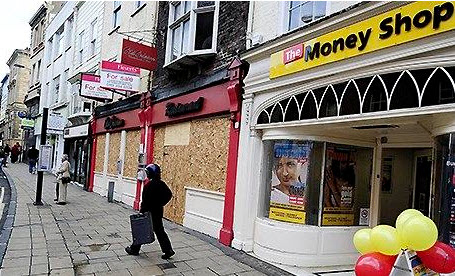As if disappointing data and concerns over the Eurozone, and elsewhere, haven’t been enough to create a feeling amongst those living in the UK that all is not quite so well as they thought then out comes a report that says millions of people are less than a month away from having to survive on benefits, or help from friends and family in the event of “a sudden loss of income”.
Despite the average household thinking they could last 77 days in reality the average household is just 29 days away from this point, while others are much closer still, according to the Deadline to the Breadline report to be released this week.
The concerns expressed by many over the rising cost of living during the year ahead, as well as fears of falling wages, more than a third of households (36% ) have “no strategy in place to cope with financial hardship”, says the report from Legal & General which draws on analysis by the Centre for Economics and Business Research (CEBR) and a survey of almost 5,000 people in the UK.
Homeowners who have paid off their mortgage are in the best position, able to last for 426 days before exhausting their reserves. While those with a mortgage would have just 22 days before their money disappeared. And the typical household living in private rented accommodation is just two days away from the breadline, the report warns.
A 2% rise in interest rates would take the typical household with a mortgage one day closer to this point. Even a rise of just 1% would have an impact – meaning households would no longer be able to save each month and would have to change their spending habits, or rely on existing savings, to make ends meet.
Low interest rates combined with falling incomes in real terms have resulted in households saving £8.12 less per month on average in 2014 compared with last year. And more than a third (35%) of the population have not saved any money to protect them in the event of an unexpected shock to their income.

Britons facing an uncertain future
John Pollock, the chief executive of Legal & General Assurance Society warns
With new economic headwinds approaching and an interest-rate rise on the horizon, now is not the time to be burying our heads in the sand.
Talk of the economic recovery and an increase in consumer confidence could lead many people to revert back to their old habits when now really is the time to think about protecting their future.
Some of you may accuse me of scaremongering but this report is timely and a reminder, as I’ve said for a long time, that all is not so well with the UK at grass roots level and the negative impact of interest hikes can not be ruled out even if they are being pushed further down the road.
The Independent has more here